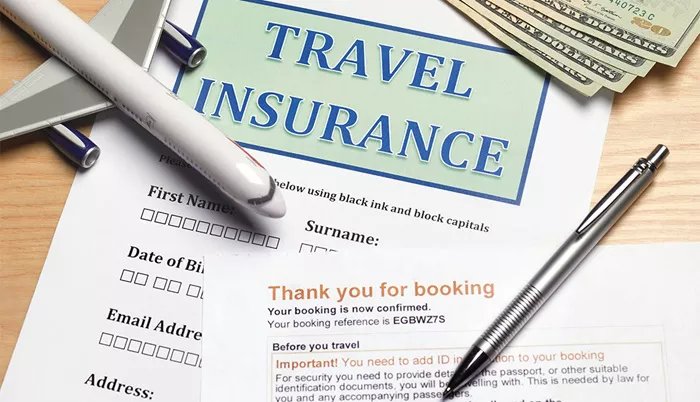Introduction
Holiday insurance, also known as travel insurance, is a crucial component of any travel plan. Whether you’re embarking on a weekend getaway or an extended international adventure, holiday insurance provides essential coverage against a wide range of unforeseen events. In this essay, we will delve into the importance of travel insurance, highlighting its role in providing financial protection, covering medical emergencies, trip cancellations, lost belongings, and more. Additionally, we will explore the implications of traveling without insurance, the significance of choosing the right policy, and how holiday insurance can offer peace of mind to travelers.
Importance of Travel Insurance
Travel insurance is a safety net that shields travelers from the financial repercussions of unexpected events during their trips. It offers peace of mind and allows travelers to focus on enjoying their holiday without worrying about potential losses or emergencies. Here’s why travel insurance is crucial:
Financial Protection Against Unexpected Events
One of the primary reasons for purchasing travel insurance is to safeguard against unexpected events such as medical emergencies, trip cancellations, and lost luggage. Without insurance, travelers may find themselves facing substantial financial burdens if they encounter any of these situations during their trip.
Medical Emergency Coverage
Medical emergencies can occur unexpectedly, and the costs of treatment abroad can be staggering. Travel insurance provides coverage for medical expenses, including hospitalization, surgery, and medications. Moreover, in severe cases where repatriation is necessary, travel insurance can arrange and cover the costs of returning the traveler to their home country for further treatment.
Trip Cancellation Protection
Despite careful planning, unforeseen circumstances can force travelers to cancel or interrupt their trips. This could be due to illness, injury, natural disasters, or other emergencies. Travel insurance reimburses non-refundable expenses such as flights, accommodations, and tour bookings in the event of trip cancellations or interruptions, providing financial relief to travelers.
Lost or Stolen Belongings
Theft or loss of personal belongings can disrupt a trip and cause significant inconvenience. Travel insurance offers coverage for lost or stolen baggage, allowing travelers to claim compensation for the value of their belongings. This includes essential items such as clothing, electronics, and travel documents, minimizing the financial impact of such incidents.
Legal Requirement and Visa Applications
In some countries, travel insurance is a legal entry requirement or mandatory for certain visa applications. For example, several European countries require visitors to have travel insurance with minimum coverage for medical expenses before granting a Schengen visa. Therefore, having travel insurance not only provides financial protection but also ensures compliance with immigration regulations.
Peace of Mind
Perhaps the most valuable aspect of travel insurance is the peace of mind it offers to travelers. Knowing that you are covered for unexpected events allows you to relax and fully immerse yourself in your holiday experience. Instead of worrying about potential financial losses or emergencies, you can focus on creating lasting memories and enjoying your time away from home.
Pre-Existing Medical Conditions
Traveling with pre-existing medical conditions can be challenging, as they may require specialized medical care or treatment during the trip. Travel insurance policies often provide coverage for pre-existing conditions, ensuring that travelers receive the necessary medical attention without incurring exorbitant expenses. However, it’s essential to disclose any pre-existing conditions when purchasing insurance and review the policy to understand the extent of coverage.
Costs Without Insurance
The costs of medical treatment abroad can be astronomical, especially in countries with high healthcare expenses such as the United States. For example, a broken leg in Spain could result in medical bills amounting to thousands of dollars, while a stomach bug in the USA could lead to expensive hospitalization and treatment. Without insurance, travelers may find themselves facing financial hardship or even bankruptcy due to medical expenses incurred during their trip.
How to Choose the Right Policy
Selecting the appropriate travel insurance policy is crucial to ensure adequate coverage for your trip. Here are some factors to consider when choosing a policy:
Coverage: Evaluate the coverage offered by the policy, including medical expenses, trip cancellations, lost belongings, and emergency evacuation.
Exclusions: Review the policy exclusions to understand what events or circumstances are not covered, such as pre-existing medical conditions or high-risk activities.
Limits and Deductibles: Consider the policy limits and deductibles, as well as any additional costs for optional upgrades or extensions.
Destination and Activities: Choose a policy that aligns with your destination and planned activities, ensuring coverage for specific risks or requirements.
Reputation and Customer Service: Research the insurance provider’s reputation, customer reviews, and claims process to ensure reliability and responsiveness in case of emergencies.
Conclusion
Holiday insurance is an essential investment for any traveler, offering financial protection, peace of mind, and compliance with legal requirements. From covering medical emergencies and trip cancellations to reimbursing lost belongings and providing support for pre-existing conditions, travel insurance ensures that travelers can enjoy their holiday experience without worrying about potential risks or expenses. By choosing the right policy and understanding its coverage, travelers can embark on their journeys with confidence, knowing that they are prepared for whatever the road may bring.
FAQs about Travel Insurance
1. Is it OK to not have travel insurance?
While it’s not mandatory to have travel insurance for every trip, it’s highly recommended. Travel insurance provides financial protection against unexpected events like trip cancellations, medical emergencies, or lost luggage. Without it, you could be left with significant expenses if something goes wrong during your travels.
2. Why do travelers need to have travel insurance?
Travel insurance offers peace of mind by covering various unforeseen circumstances. Here are some reasons why travelers should consider getting travel insurance:
Medical emergencies: If you fall ill or get injured while traveling, medical expenses can be exorbitant, especially in foreign countries.
Trip cancellations or interruptions: Travel insurance can reimburse you for non-refundable expenses if you have to cancel or cut short your trip due to covered reasons such as illness, natural disasters, or airline strikes.
Lost or delayed baggage: Travel insurance can provide compensation for lost, stolen, or delayed baggage, helping you replace essential items during your trip.
Emergency evacuation: In the event of a medical emergency or natural disaster, travel insurance can cover the costs of emergency evacuation to a medical facility or your home country.
3. Do you absolutely need travel insurance?
While travel insurance is not mandatory for all trips, it’s highly advisable, especially for international travel or trips involving expensive bookings. Consider factors such as your destination, activities planned, health condition, and the cost of your trip when deciding whether to purchase travel insurance. Remember that the unexpected can happen anytime, anywhere, and travel insurance provides valuable protection against unforeseen events.
4. Is it worth claiming on holiday insurance?
Whether it’s worth claiming on holiday insurance depends on the circumstances and the coverage of your policy. Here are some considerations:
Evaluate the cost of the claim versus your excess: If the cost of your claim exceeds the excess payable, it may be worth claiming.
Consider the impact on future premiums: Making frequent claims may lead to higher premiums or affect your ability to obtain coverage in the future.
Assess the extent of coverage: Review your policy to determine if the incident is covered and the extent of compensation provided.
Document the incident: Keep records, receipts, and documentation related to the incident to support your claim.
You Might Be Interested In




















